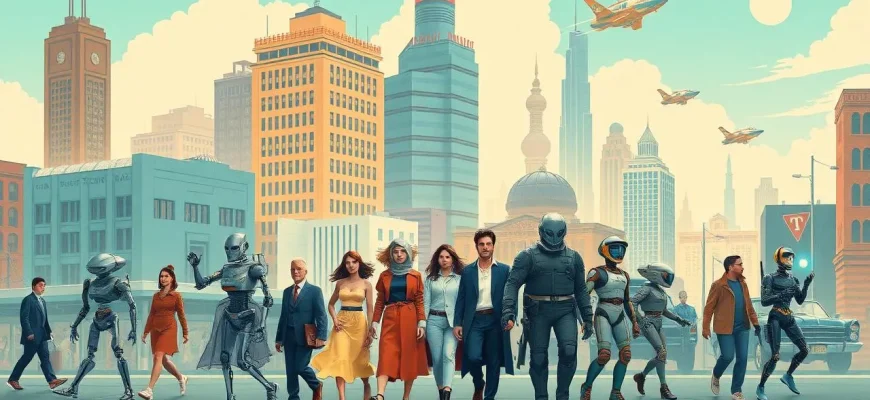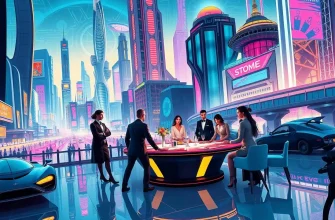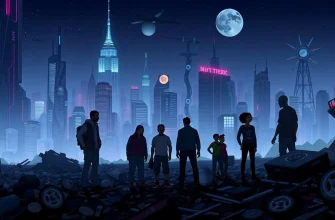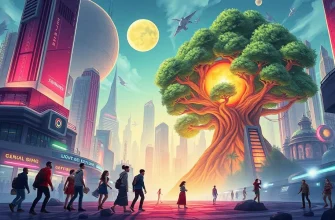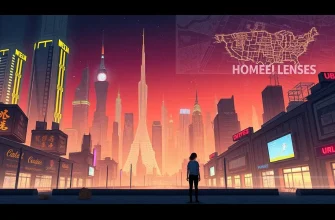Science fiction has long been a genre that not only entertains but also challenges us to think about the future of our society. These films explore themes of social change, from technological revolutions to shifts in political power, offering a mirror to our own world and prompting us to ponder the direction in which we are heading. Whether it's through dystopian futures, utopian dreams, or cautionary tales, these movies provide a rich tapestry of ideas that resonate with contemporary issues. Here's a curated list of 10 sci-fi films that delve into the complexities of societal transformation.
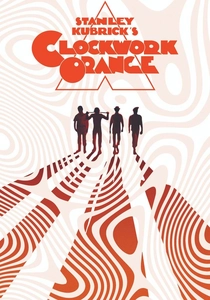
A Clockwork Orange (1971)
Description: Stanley Kubrick's adaptation of Anthony Burgess's novel portrays a future where youth violence is rampant, and the state attempts to control it through extreme measures. It's a stark examination of free will and societal control.
Fact: The film was banned in several countries due to its graphic violence. The term "ultraviolence" was popularized by the film.
 Watch Now
Watch Now

Gattaca (1997)
Description: This film presents a genetically stratified society where one's DNA determines their social status. It's a poignant look at genetic discrimination, personal identity, and the pursuit of dreams against all odds.
Fact: The film's title is derived from the letters of the four DNA nitrogenous bases: guanine, adenine, thymine, and cytosine. The production used real NASA footage for authenticity.
 Watch Now
Watch Now

The Matrix (1999)
Description: This film explores a world where humans are unknowingly trapped inside a simulated reality created by sentient machines. It delves into themes of freedom, control, and the nature of reality, making it a profound commentary on societal manipulation and the quest for truth.
Fact: The Wachowskis drew inspiration from various philosophical concepts, including Plato's Allegory of the Cave. The film's iconic "bullet time" effect was revolutionary in visual effects.
 Watch Now
Watch Now
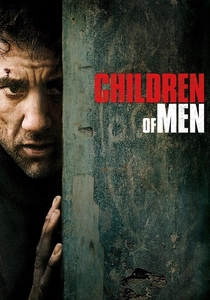
Children of Men (2006)
Description: In a world where humans can no longer procreate, this film follows a man's journey to protect the only pregnant woman, symbolizing hope amidst societal collapse.
Fact: The film features a 6-minute long take, one of the longest in cinema history. It was inspired by P.D. James's novel of the same name.
 Watch Now
Watch Now

Equilibrium (2002)
Description: In a future where emotions are outlawed, this film examines a society where citizens are forced to take drugs to suppress feelings. It's a chilling look at the cost of conformity and the human spirit's resilience.
Fact: The film's aesthetic was heavily influenced by German Expressionism. The term "gun kata" was coined for the film's unique fighting style.
 Watch Now
Watch Now
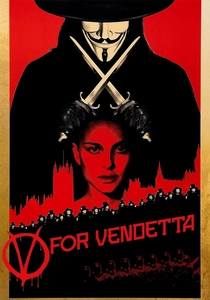
V for Vendetta (2005)
Description: Set in a dystopian future Britain, this film follows a masked vigilante who seeks to overthrow a totalitarian regime. It's a powerful narrative about resistance, freedom, and the impact of one person's actions on society.
Fact: The film was adapted from Alan Moore's graphic novel, and Moore famously disowned the movie adaptation. The Guy Fawkes mask has since become a symbol of protest worldwide.
 Watch Now
Watch Now

Elysium (2013)
Description: Set in a future where the wealthy live on a space station, this film explores themes of class division, healthcare, and immigration. It's a critique of societal inequality and the human cost of progress.
Fact: The film's title refers to the Elysian Fields in Greek mythology, a paradise for the virtuous dead. Director Neill Blomkamp was influenced by his experiences in South Africa.
 Watch Now
Watch Now

The Lobster (2015)
Description: In a world where single people must find a romantic partner within 45 days or be transformed into animals, this film satirizes societal pressures to conform to traditional relationships.
Fact: The film was shot in Ireland, with many scenes filmed in the Kerry countryside. It won the Jury Prize at the Cannes Film Festival.
 Watch Now
Watch Now

Brazil (1985)
Description: Terry Gilliam's surreal masterpiece depicts a bureaucratic dystopia where one man's quest for freedom leads to a Kafkaesque nightmare. It's a critique of consumerism, bureaucracy, and the loss of individuality.
Fact: The film's title refers to the song "Aquarela do Brasil," which plays during the opening credits. It had a tumultuous production with conflicts between Gilliam and Universal Studios.
 30 Days Free
30 Days Free
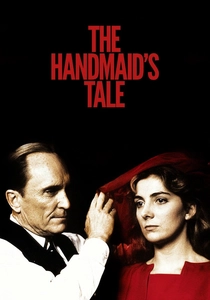
The Handmaid's Tale (1990)
Description: Based on Margaret Atwood's novel, this film explores a theocratic regime where fertile women are enslaved for reproductive purposes. It's a harrowing look at gender roles, power, and resistance.
Fact: The film was overshadowed by the success of the TV series adaptation. The book's title comes from Geoffrey Chaucer's "The Canterbury Tales."
 30 Days Free
30 Days Free

